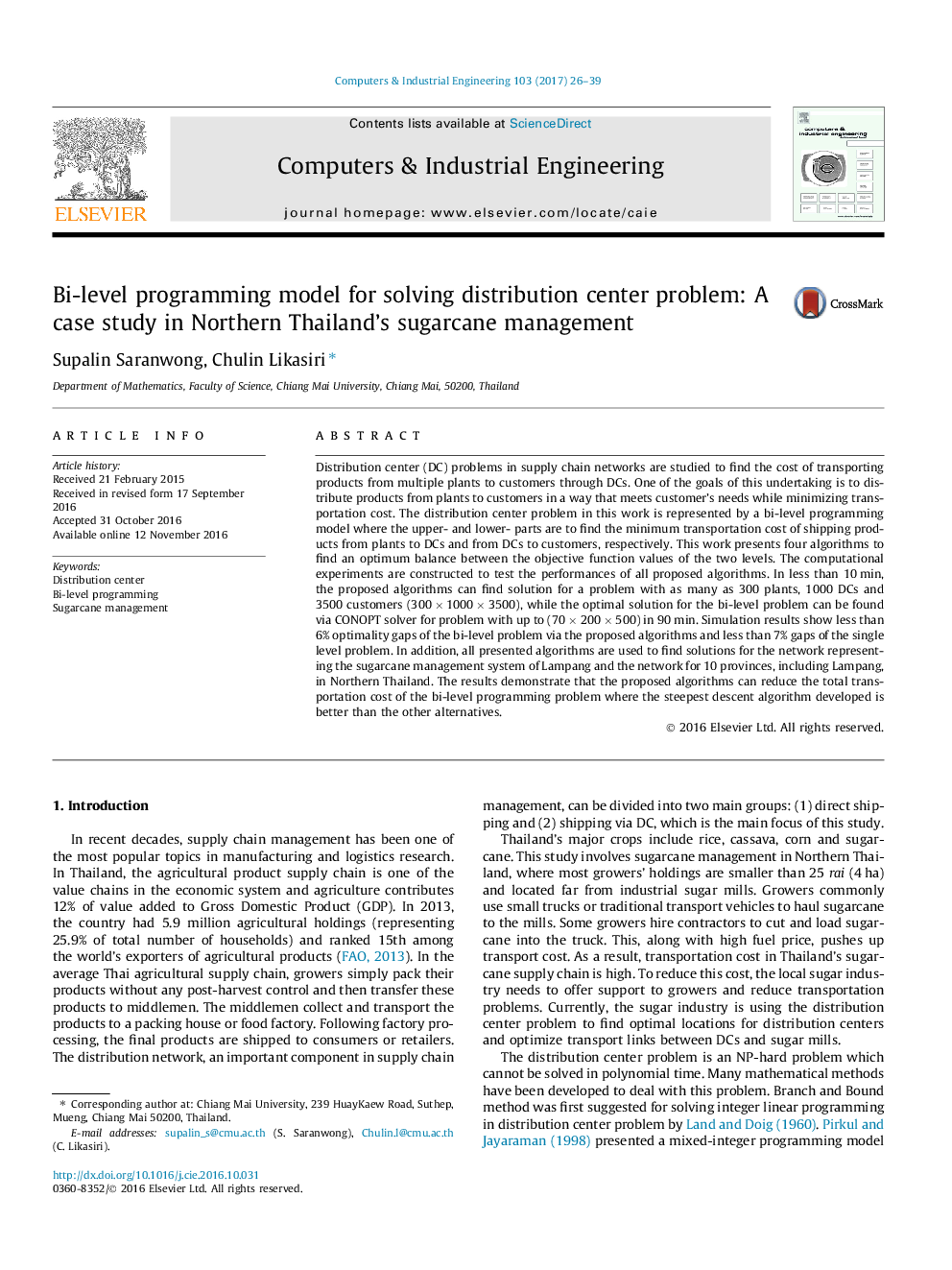| کد مقاله | کد نشریه | سال انتشار | مقاله انگلیسی | نسخه تمام متن |
|---|---|---|---|---|
| 5127839 | 1489063 | 2017 | 14 صفحه PDF | دانلود رایگان |

- The distribution center problem is formulated with Bi-level programming.
- We present 4 algorithms to improve the upper bound of BLP.
- Algorithms are tested on 9 combinations of DC and growers with 100 random data sets.
- The shooting step is added in some algorithms to avoid local optima.
- A case study on Thai sugarcane management is studied and solved by all algorithms.
Distribution center (DC) problems in supply chain networks are studied to find the cost of transporting products from multiple plants to customers through DCs. One of the goals of this undertaking is to distribute products from plants to customers in a way that meets customer's needs while minimizing transportation cost. The distribution center problem in this work is represented by a bi-level programming model where the upper- and lower- parts are to find the minimum transportation cost of shipping products from plants to DCs and from DCs to customers, respectively. This work presents four algorithms to find an optimum balance between the objective function values of the two levels. The computational experiments are constructed to test the performances of all proposed algorithms. In less than 10Â min, the proposed algorithms can find solution for a problem with as many as 300 plants, 1000 DCs and 3500 customers (300Â ÃÂ 1000Â ÃÂ 3500), while the optimal solution for the bi-level problem can be found via CONOPT solver for problem with up to (70Â ÃÂ 200Â ÃÂ 500) in 90Â min. Simulation results show less than 6% optimality gaps of the bi-level problem via the proposed algorithms and less than 7% gaps of the single level problem. In addition, all presented algorithms are used to find solutions for the network representing the sugarcane management system of Lampang and the network for 10 provinces, including Lampang, in Northern Thailand. The results demonstrate that the proposed algorithms can reduce the total transportation cost of the bi-level programming problem where the steepest descent algorithm developed is better than the other alternatives.
Journal: Computers & Industrial Engineering - Volume 103, January 2017, Pages 26-39